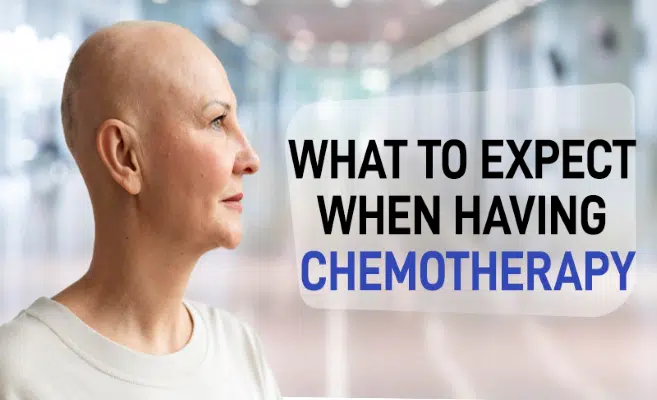What to Expect When Having Chemotherapy

One of the most common questions asked by patients facing chemotherapy is “How painful is the treatment?”. Chemotherapy can cause discomfort and sometimes pain, however, it is important to remember that our anticipation of what is going to happen can cause anxiety and distress, which will increase our perception of pain and discomfort.
A team of highly trained medical professionals will work together to give you the best possible care. This team includes a medical oncologist, an oncology nurse and other healthcare professionals like pharmacists, nutritionist, physical therapists, etc.
Before starting your chemotherapy, your medical oncologist will review your medical records and do a physical examination in order to plan your treatment.
Let us now take a look at what to expect when having Chemotherapy:
Insertion of the Intravenous (IV) Catheter:
If your chemo is being administered intravenously, then there can be a minor sting and some discomfort when the needle is being inserted in your skin and a thin flexible tube (catheter) is eased into your vein.
You can ask your doctor to prescribe a numbing patch that can be kept in place for around 20 to 30 minutes, if you are very nervous about the pain. For the most part, people undergoing IV chemotherapy report little discomfort.
Infusion:
The actual chemotherapy session is usually painless; however, some chemo drugs may cause a slight burning as they enter your vein, but this is usually minor and tends to ease as the infusion progresses. If the IV is in your hand or wrist, you might feel a little burning sensation while moving up your arm, but that is normal and the pain would eventually ease off. If at any point you feel pain or discomfort, then let the nurse know about the same.
After the Therapy:
After your treatment is finished, your IV will be taken out and the nurse will check your blood pressure, pulse, breathing and temperature. You will also be given medications, tips to manage side effects and other tips like avoiding being around people with cold or infections, drinking lots of fluids for the next 48 hours, etc.
To speak with our highly specialized oncologist, feel free to consult us at PSRI Hospitals.

 Book An Appointment
Book An Appointment Virtual Consultation
Virtual Consultation





